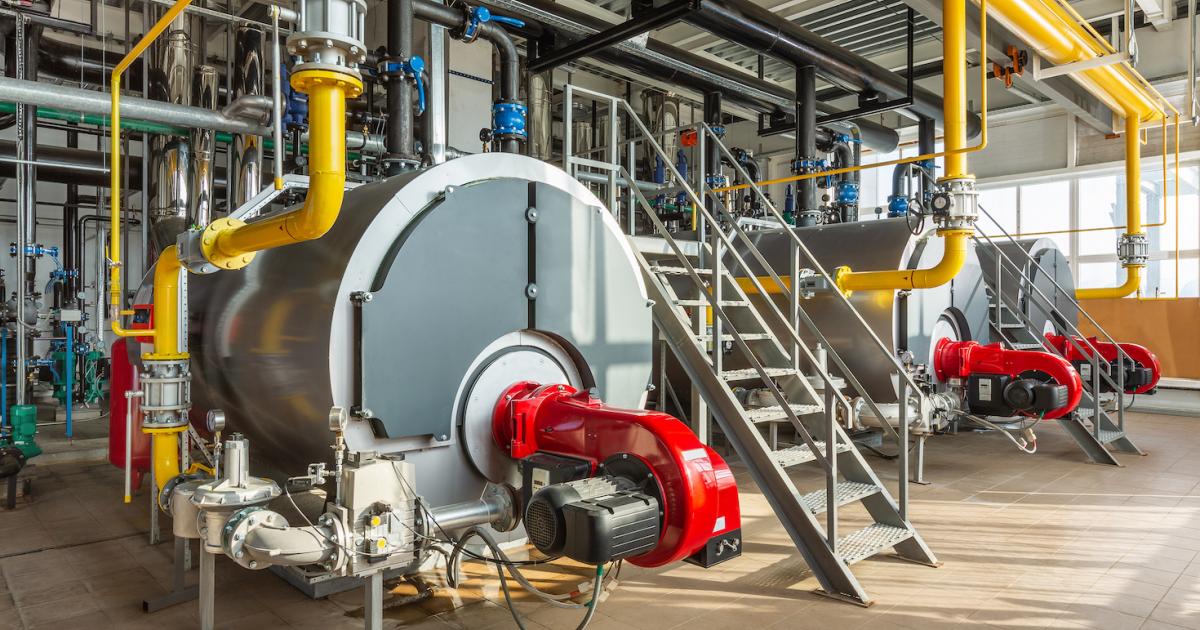March 3, 2023
Industrial Boiler Types and Classification
Boilers are devices that provide heating of chemical energies. Steam is produced with various energy sources and this steam is used in many industrial works. Industrial boiler types are designed to generate some kind of power. At the same time, it is needed in many areas due to its hot water supply. Boilers are classified according to different needs. Boiler types classified according to their features are as follows:
According to the type of material used in boiler construction; Steel boiler, cast sliced boiler
According to the type of fuel to be used; liquid fuel, gas fuel, and solid fuel
Counter-pressurized and non-counter-pressurized boilers compatible with the pressure of the combustion chamber
Separated in terms of the external design of the boiler; flame tube, water tube, flame smoke tube, and smoke tube boiler types
Separated according to the type of heating fluid; hot water boilers, boiling water and steam boilers
Boilers divided in form; half cylindrical, full cylindrical and prismatic package boiler
Flame tube boilers realize heat transfer with tubes surrounded with water. Water and steam are located in the shell section. The most suitable examples of these boiler types are locomotives and ships. Water-tube boilers are surrounded by tubes in which the water and steam mixture is entangled. Water tube boilers are more in demand than the flame tube boiler type. The emergence of water tube boilers in different designs over the years has made this boiler type more available.

What are the General Features of an Industrial Boiler?
Boiler types and classifications are divided according to general features. Industrial boilers have many features according to different models. Some boiler features are as follows:
Boilers are divided according to their structure, steam capacity, and operating pressure.
Industrial boilers with high capacity are offered in two different structures according to the preference of users. These are divided into two a water tube and a flame smoke tube. In water tube boilers, heating gas passes outside the pipe. In flame smoke tube boilers, smoke gas flows through pipes surrounded by water. This boiler type can produce 25 tons of steam per hour according to its characteristics. Flame smoke tube boilers fulfill many conditions needed in industrial production.
Industrial boilers use low fuel. However, despite this, it produces very high amounts of steam.
Very low weight and a small area are needed.
Industrial boilers need to be cheap and concentrated.
These boiler types meet surge loads. In this way, it is about steam boilers and their types.
In the face of this information, it can be understood how important industrial boilers are.
What is Industrial Boiler Function? What Does It Do?
Industrial boiler types emerge with different functions. Industrial boilers manufacture and store the required steam. Boiler types that contain the liquid in their structure have nothing but shells. The type of energy produced while burning fuel will be transferred to water thanks to heat energy. After these stages, the necessary pressure and temperature are transformed into steam.
Among the basic conditions of industrial boilers, it is stated that water containers must be carefully locked. The quality, ratio, temperature, and pressure of the water vapor must be provided in the required conditions.
Industrial boilers convert the chemical energies in fuels into heat energies. Various fuels and air are sprayed into the combustion chamber. As a result, combustion takes place and the heat released will vaporize the water in the boiler tube.
The areas where industrial boilers are used are quite wide. These boilers, which fulfill many important functions in the areas where they are used, are preferred according to their different features. Industrial boilers with different features are used in every industrial field. Industrial boilers are ideal heat carriers. Energy savings are achieved due to its environmental friendliness. With these boilers, temperature control will work precisely. Steam boilers do not have a risk such as flammability. However, it needs high energy and pressure to operate.
Industrial Boiler Working Principle.
The working principles of industrial boilers have a very easy system. These boilers consist of cylindrical shapes. It also has a closed image. Industrial boilers have steam and water capacities. In general terms of boilers, liquids burn fuels and apply their heat energy to the boat length. It will then be stored so that it can produce steam under different pressure conditions in accordance with the specifications.
After these stages, the steam in the boiler is supplied with the help of a pipe. This supplied steam is transferred to different industries. The main items of the boilers include a shell, grate, furnace, assembly, and water section. Apart from these, there are also foaming, scale, blowing, and delay sections.
What are the Advantages and Disadvantages of Steam Boilers?
Steam boilers are a product needed in many sectors of the industrial world. The fact that these products have many functions and facilitate the operations to be performed makes boilers preferable. Steam boilers have many important advantages. The technological innovations that these boilers have shown over the years enable them to be used in different sectors. The advantages of steam boilers are as follows:
- A very low cost is needed in the construction of steam boilers.
- Although steam boilers are of different types, all kinds of chimneys can be used.
- A large and wide area is not needed for the use of steam boilers. A small area is sufficient.
- Different types of these boilers can be transported in any way.
- Steam boilers are self-closed.
These advantages are very important for steam boilers to be usable. Although industrial boiler types have different features, the advantages they provide are the same. These machines, which offer important features and advantages, are a product needed in many industrial areas.
Although so many important advantages of steam boilers make it preferable in every field, they can also create disadvantages in some cases. Although these disadvantages do not cause any problems in use, the deficit can be closed thanks to various methods. Some disadvantages of steam boilers are as follows:
- The vertical design of steam boilers is an important disadvantage. As a result, the vertical design will cause low boost capacity.
- Steam boilers have limited pressure. They also have limited capacity.
- Steam boilers are very difficult to clean. In addition to cleaning, it is also very challenging to inspect if a malfunction occurs.
- High space is needed in the environment where steam boilers are located.
These disadvantages do not prevent the use of steam boilers. However, it can cause difficult use from time to time as it reduces efficiency. When choosing a steam boiler, it is very important to make a choice suitable for the boiler room. At the same time, a steam boiler suitable for the steam requirement should be purchased, and for this, the steam requirement should be clearly measured. The steam boiler takes more than the need creating high costs for the manufacturer. Apart from that, steam will also be used inefficiently.
In cases requiring low-pressure steam, delivering steam to the devices with high pressure with the steam boiler will reduce the pressure. Thus, efficiency is kept at the highest levels. If industrial boilers are used only for heating purposes, alternative systems can be considered.
The main use of steam boilers is to ensure that the devices operating with this energy perform their functions efficiently. If these items are taken into consideration, the efficiency obtained from the steam boiler will be at the highest levels. Thus, by making the right choice, advantages and savings will be achieved in many ways.
Conclusion
In conclusion, industrial boilers play a crucial role in various industries by generating steam and providing a hot water supply. Sanarise Industrial Boilers manufactures high-quality boilers that cater to the diverse needs of different sectors. These boilers are designed to be efficient, environmentally friendly, and precise in temperature control. While steam boilers come with some disadvantages, such as limited pressure and capacity, these challenges can be overcome with the right choice and proper maintenance. By investing in a reliable industrial boiler, companies can optimize their operations and achieve significant savings in the long run.




